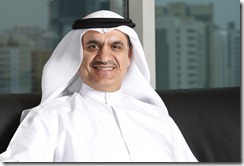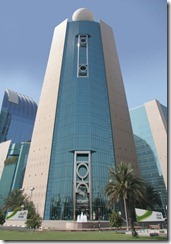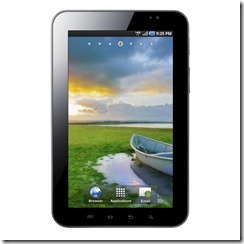Ahmad Julfar was confirmed as CEO of Etisalat Group in August this year, and in his first official interview since his appointment, details his plans to build on the telco’s strong history in order to overcome very real, modern, and complex challenges
Julfar believes very few other telecommunications company in the world have a more complete portfolio of products, capabilities and talent than Etisalat
Comm. conducted a detailed interview with Ahmad Julfar at the beginning of the year when he still held the position of Etisalat Group’s chief operating officer. In that conversation Julfar acknowledged the tightening competitive landscape across many of the markets in which Etisalat operates today, and emphasised the necessity for leading telcos to offer customers unique, interactive experiences and provide value added services in order to remain successful. As the group’s incoming CEO, Julfar appears determined to have the telco draw nearer to its customers and offer an appealing array of services that generate income at a satisfactory margin.
“With the saturation of some markets in the region and the proliferation of advanced broadband technologies, both fixed and mobile, telecom service providers have to look at not just the size of the pipe for data delivery but also offer the content that people need,” Julfar told Comm.
“In order to provide premium content whenever, wherever and on whichever connected device that the customer requires, a successful business model calls for strong partnerships forged between telcos, media companies, and hardware vendors. This is a key focus for Etisalat as we seek to maintain our competitive edge,” he added.
Indeed, Etisalat has invested heavily in the ‘pipe’, having recently announced the commercial launch of its LTE network in the UAE, and having already deployed FTTH networks across much of the country, making Abu Dhabi one of the first cities in the world to be fully FTTH-connected.
In the run up to the launch of LTE, more than 700 base stations were renovated and equipped to provide 4G services in the UAE, with Etisalat planning up to 1,000 fully operational LTE base stations by the end of this year.
The LTE technology is integrated with Etisalat’s fibre optics network, which offers tremendous potential in terms of fixed Internet services, providing speeds of up to 100Mbps, advanced high definition TV services (IPTV2) and a fixed landline.
The perennial problem of identifying the right services to drive data usage persist across the region, though Julfar is confident that with the expansion of the form factors of devices accessing such content, uptake and revenues are set to expand.
“Content services provide a platform for service differentiation. This new era of mobile broadband and connected devices drives data consumption and demands increased bandwidth and advanced technologies to support the massive data traffic volume,” Julfar said. “Through our investments in technologies like M2M (machine-to-machine), FTTH and LTE we are ready for that challenge.”
Etisalat’s global subscriber base exceeded 140 million as of June 30, 2011, representing an increase of 20 per cent year-on-year, driven predominately by international operations
When we spoke to Julfar last in March, Etisalat Group was undertaking the due diligence process with the view to acquiring the majority of the assets of Zain Group, in a deal estimated to be worth just under US$12 billion. Etisalat subsequently ended the pursuit of its Kuwaiti counterpart, stating that, “due to the results of due diligence done by Etisalat’s financial advisers and legal experts, the political turmoil in the region and the effect of the law binding offers that is due to be issued in Kuwait…Etisalat conditions are no longer applicable.”
Though the negotiations with Zain ended, Etisalat continues to look to the future with the confidence of launching and completing the right acquisition choices at the right time.
“Etisalat is always exploring new opportunities whenever they arise,” Julfar confirmed. “We remain committed to a prudent investment approach and our expansion to date has resulted in our presence in some of the most highly populated and under-penetrated countries in the world.”
Telecom analysts believe that Etisalat’s discontinued pursuit to acquire 51% of Zain may not be the end of the story given the significant strategic fit the two companies enjoy.
“It is really significant that Etisalat and Zain had so few geographical overlaps,” an equity analyst in Dubai told Comm. “It potentially made the deal more attractive to Etisalat in the sense that it was largely gaining access to markets it did not already have a presence in. Saudi Arabia was the only complication, and in the end the Saudi overlap was one of the factors that stopped the deal going through.”
The equity analyst does not rule out the possibility of Etisalat re-tabling an offer in the future, be it at a lower price level than the one tabled in 2010.
In its own right, however, Etisalat remains a significant player in the Middle East Africa landscape, and consistently rises up through the rankings of the largest telcos globally. The group’s global subscriber base exceeded 140 million as of June 30, 2011, representing an increase of 20 per cent year-on-year, driven predominately by international operations.
Group revenue for the first half of 2011 amounted to AED15.97 billion (US$4.35 billion), which was in line with the previous year. Revenue earned from international operations contributed 25 per cent to overall revenue exhibiting a 17 per cent increase year-on-year. Etisalat’s investment strategy is based on long-term investment, while at the same time delivering strong return on investment to shareholders, Julfar pointed out.
A clear area of concern for Etisalat, as with most regional operators, is the downward pressure being exerted on profitability given the rise in market competition and the flattening of average revenues. The telco has witnessed falling profitability over the past few years and Julfar is aware of the balancing act required to try and redress the trend, and believes Etisalat has all the tools to arrest the problem effectively.
“It is true, customer acquisition and retention are major challenges for any operator,” Julfar said. “The cost of customer acquisition is four times higher than the cost of retaining existing customers and I think there are three key areas that keep customers loyal: trust in the brand, quality of service and delivering innovative solutions that customers need.”
Julfar believes very few other telecommunications company in the world have a more complete portfolio of products, capabilities and talent than Etisalat, which means the telco is committed to bringing the benefits of telecommunications to customers through its investment in innovation.
An example of such innovation is the programme recently announced by Etisalat in Zanzibar whereby the UAE telco together with Zantel, Qualcomm and D-Tree International are set to bring mobile health services to Tanzania.
Working closely with the government of Zanzibar; Etisalat, Zantel and D-Tree International (a non-profit organisation committed to changing the way health care is delivered in developing countries) plan to use mobile technology to support front-line healthcare providers in offering high quality counselling, preventive care and treatment to women and children.
Etisalat, Zantel and Qualcomm will provide connectivity, handsets and other technologies to the programme, while D-Tree International in conjunction with Zanzibar’s ministry of health alongside several leading international non-governmental organisations will deploy the service.
“Customers benefit from our investments in innovation in the form of breakthrough communications experiences,” Julfar stated. “Businesses, industries and communities benefit from working with Etisalat because our innovation enables local economic development, education and evolution of their own technology futures.”
Julfar believes content services provide a platform for service differentiation and that this new era of mobile broadband and connected devices is driving data consumption, which can be monetised
Etisalat Group’s incoming CEO
Ahmed Abdulkarim Julfar was appointed group CEO of Etisalat in 2011. Today as he leads the group operations in over 18 markets. Julfar is responsible for driving Etisalat Group’s strategy across the footprint and realising the full potential of the company’s 53,000 staff. He also represents the group at international forums and conferences, growing Etisalat’s reputation for leadership in innovation and quality.
Julfar has over 25 years’ experience in the telecommunication sector. During these years, he has worked in many technical and managerial positions and supported initiatives and projects that have been integral to the development of the group.
His most recent successes include the roll-out of the Next-Generation Network (NGN) across the UAE and the deployment of the largest 3G and 4G mobile networks in the Middle East and Africa.
Julfar joined Etisalat after graduating in 1986, starting off in the Network Planning department.
Prior to his appointment as chief operating officer, Julfar served as GM of both Etisalat Dubai and of eCompany – which is now the Enterprise Solutions Group. At that time, he helped in launching new initiatives such as e-Business and e4me. He has also served as GM at Comtrust.
Julfar graduated from the Gonzaga University in Washington, USA, with degrees in Civil Engineering and Computer Science.





0 comments ↓
There are no comments yet...Kick things off by filling out the form below.
Leave a Comment